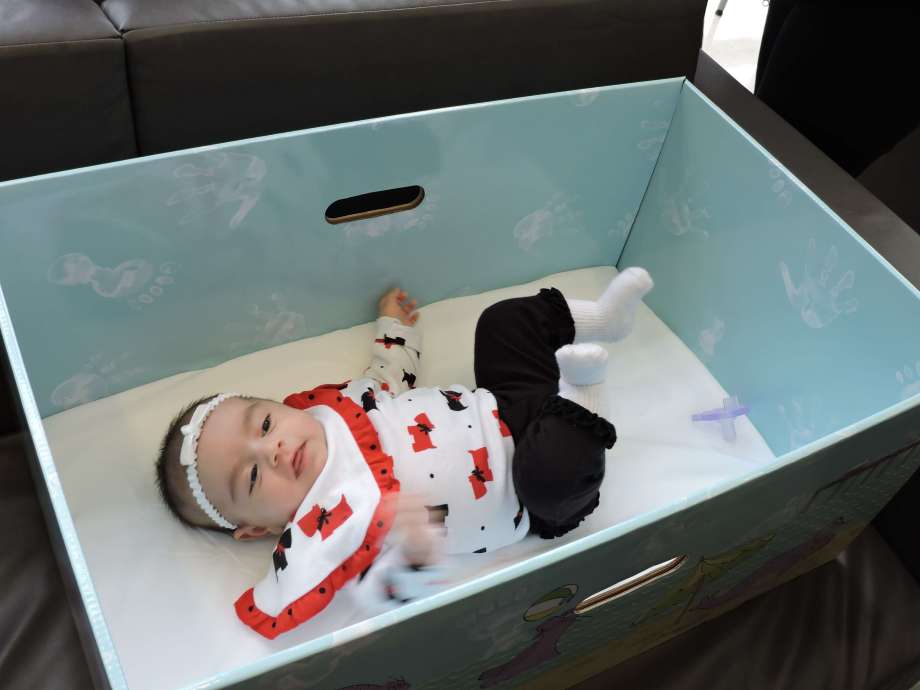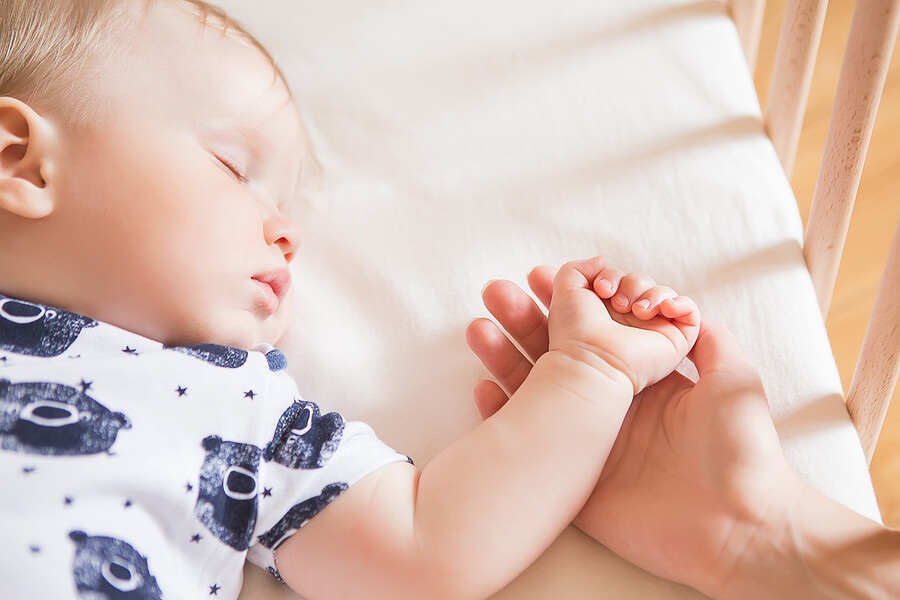The Pros of Having Your Baby Sleep in a Box

New Jersey recently became the first in the U.S. to launch a universal Baby Box program, which, according to research, reduces infant mortality rates, including Sudden Unexpected Infant Death Syndrome. (SUIDS). According to NPR, Alabama and Ohio have also joined New Jersey in offering free baby boxes to the families of all newborns in the state.
Wait—this means newborns will be sleeping in a cardboard box as opposed to a crib or bassinette? Yes.
Studies Show...
Before you buy fancy bedding and blankets for your newborn, know this: Over the years, the use of Baby Boxes has been credited with helping Finland achieve one of the world's lowest infant mortality rates. According to the World Health Organization, thanks to Baby Boxes, Finland's infant mortality rate went from 65 deaths for each 1,000 children born in 1938 to 1.3 deaths per 1,000 births in 2013.
How It Works

Photo courtesy of Cooper University Health Care.
Jersey parents-to-be, or brand new parents, watch an online video about the benefits of the boxes, complete a quiz, and then receive a large box filled with newborn essentials. This box doubles as a safe sleeping space, and includes a firm mattress, a waterproof cover, fitted sheet, diapers, wipes, creams, pads, a onesie, and more. (A $150 value, according to CNN.com) The box's weight limit is 52 lbs.
Baby Box Co. CEO and co-founder Jennifer Clary—who brought the Baby Box program to the states after learning about its success in Finland—said the company will distribute about 105,000 free boxes in New Jersey, ensuring that every expecting family in the state can get one. (These numbers are based on approximately how many babies are expected to be born in New Jersey in 2017)
According to NJ.com, in 2014, 57 babies died in in their sleep, according to state data. Nearly all of these young lives could have been saved had the baby been sleeping properly - alone in a crib, on his or her back, without blankets, bumpers or fluffy toys, experts say.
Be Informed
Dr. Kathryn McCans, an emergency department physician at Cooper University Health Care, serves as chair of the New Jersey Child Fatality Near Fatality Review Board. She's a big advocate of the Baby Box program; and Cooper University Health Care serves as a baby box distribution center.
"I believe that if parents have good information they will make the best choices for their children," she says. "If more infants have a safe sleep environment, the number of infants who die will decrease to the lowest possible number based on our current knowledge of what is safe and what can be done to reduce risk."
Sleep Safe: No Need for Fancy Bumpers

Dr. McCans says the goal of this program is for parents to know what is considered "safe sleep." This means a baby is put to sleep on their back every time. "And, they are placed to sleep in a bare crib – no pillows, no blankets, no bumpers, no soft objects."
According to Dr. McCans and the CDC, sleep safe also means:
- There should be a firm, well-fitted mattress with a well-fitted crib sheet only.
- The baby should not have tobacco exposure pre- or post-natally.
- There should not be any illicit substance exposure.
- The baby should get recommended vaccines.
- The mother should have pre-natal care.
- Breast feeding is a major way to reduce the risk of SIDS. Breast Feeding, exclusively, for the first 6 months is best, but any breast feeding is helpful.
- The baby should sleep in the parent's room but not on the same sleep surface.
- Pacifiers should be offered at sleep times once breast feeding is firmly established.
- Avoid overheating.
To Register
To receive a box, parents in participating states must register here with proof of their residence. After watching the video and completing the quiz, they can choose to collect their box from a distribution partner or have it shipped to their address. Note: The box's lid is never, ever placed over the baby when he/she is in the box. It's just for box storage.
Learn more about baby boxes here. Parents in non-participating states can purchase one online.
Featured photo courtesy of Cooper University Health Care.

